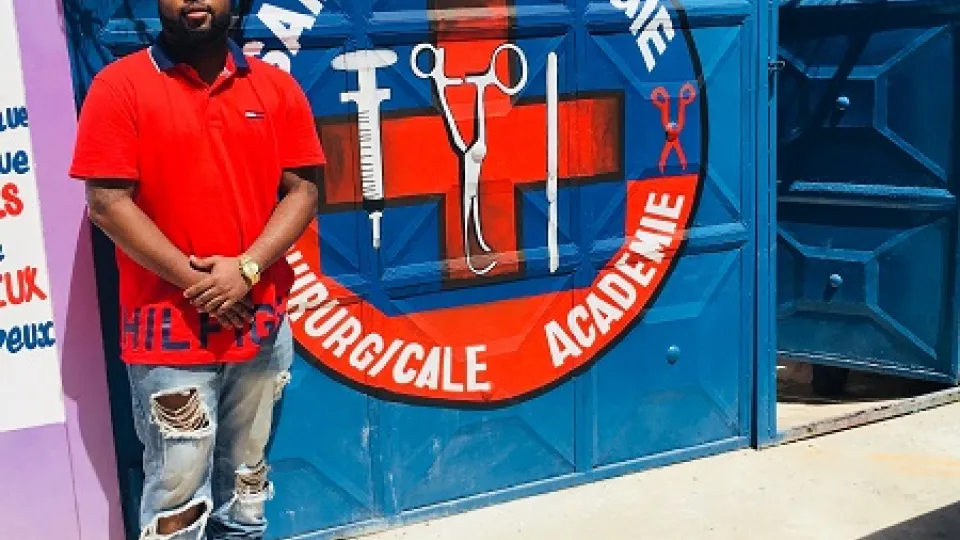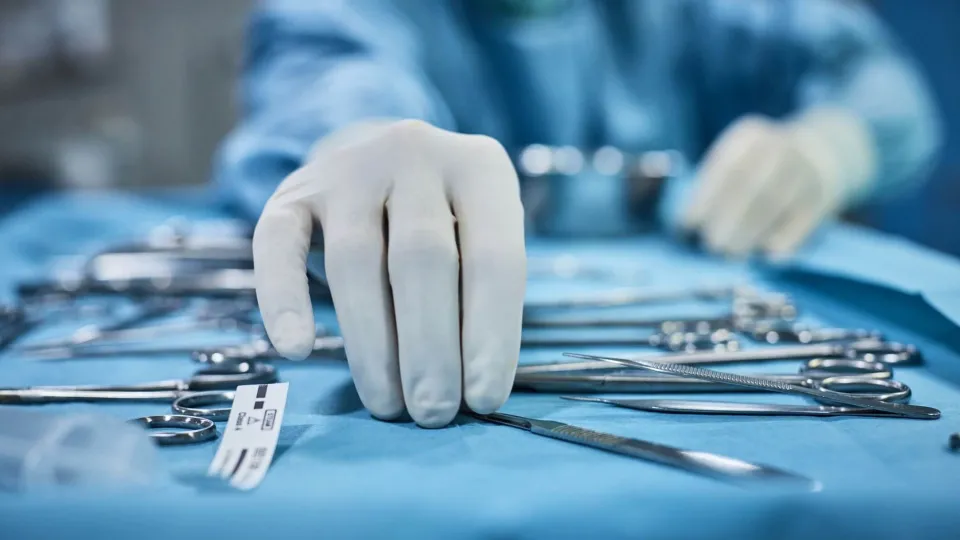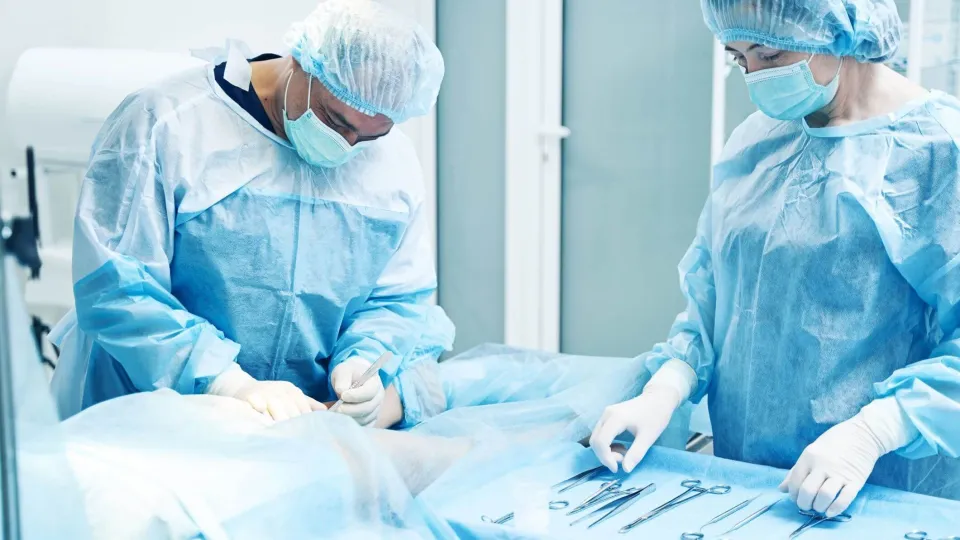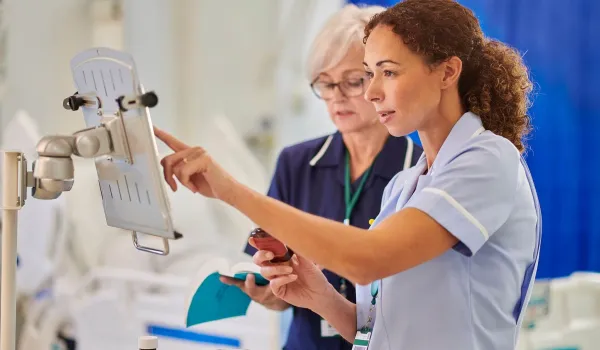
2017 Tampa Surgical Technology Program alumnus, Sammuel Toussaint, has a hectic life these days. He went to work immediately following graduation for both Tampa General Hospitals Total Joint Team and Brandon Regional Hospitals Womens Center, but he has also found the time and inspiration for another project - establishing a surgical technology academy in Haiti!
How the Academy came to life
On a trip to the Caribbean country with his wife, Akeria, a few years ago, Sammuel made a stop at a local hospital out of curiosity.
"It looked like a morgue," he said. "Everybody was dehydrated and it looked and felt uncomfortable."
Seeing this first-hand, he thought to himself, "If anything happens to me back in the U.S., I can just run to the hospital and get help. But if I went to a hospital in Haiti, there is no guarantee that I would get help."
This thought did not sit well with Toussaint, so he knew wanted to do something about it. But what? After returning from his trip, a conversation with a coworker put a plan in motion to start his own surgical technology academy in Haiti!
Getting the ball rolling
While Toussaint was unsure of what exactly would be involved in setting up a school, he knew exactly who to talk to about it: His mom.
"I started to work on my logo and talked to my mom who has a cosmetology school in Haiti. The building housing her school is two stories high and my mom only uses the upstairs. She offered to let me use the downstairs once I got all the pieces put together."
Excited to find a home for the academy, Toussaint then needed to make it official.
"In late summer of 2018, I spent a month in Haiti getting my paperwork done, including documentation for the school and paying taxes so I could have the school legalized to open in early 2019."
Prepping the building for school to start
After his trip getting the legal framework set up, it was time to start transforming the bottom floor of his mom's building into the new surgical technology academy - even with some help from his stateside employers.
"Lots of work has been done to the building, such as patching walls, painting and getting items for the students such as chairs and desks," he said. "Tampa General has been great during this time. They have helped me get all the supplies I needed for school!"
Creating a Partnership
Toussaint's next obstacle was a big one. Clinical externship for field experience as a part of a training program didn't exist in Haiti, so he had to figure out how to forge a new professional partnership.
"I worked with the local hospital to set one up and they were OK with it because it was something different and they really need the extra help," he explained. "We set it up so a percentage of the profit from the academy will go right back to the hospital because of the created partnership with them."
Toussaint had to actually break down what a surgical tech does for the doctors at the hospital because they didn't have surgical techs in the area of Haiti where the school will operate.
"After talking to the doctors, they thought this would be an awesome position to create in the hospital."
Working on the curriculum
More than anything, Toussaint wants his academy to make a difference for the people of Haiti. In order to do that, his academy will teach more than just surgical technology skills.
"My wife is going to be teaching the students phlebotomy so they can have that experience as well," he said. "We'll also be teaching basic things like washing out, wrapping and suturing wounds. I'm trying to put more into the program to give as much benefit as possible. If even one person in a village knows sterile techniques, that could potentially save a life.
"I also added glucose and blood pressure checks to the curriculum because many people in Haiti have high blood pressure and don't know it," he explained. "So it's going to be mandatory that students check 200 blood pressures before graduation. In Haiti, getting your blood pressure checked can cost 20 bucks - which is hard to come by - so I want to set up times where chairs will be set up and people can come get their blood pressure checked for free by students."
The curriculum will teach students instrumentation, sterile techniques, how to pack instruments properly, how to get patients ready for surgery, how to properly drape and prep a patient and even more on the surgical technology side.
Goals and hopes
"I'm already thinking five to 10 years down the road and wondering what I can achieve," he said.
"I want my academy to be the number one surgical technology academy in all of Haiti and to provide low-cost education for students leading to earning a degree the same as in the U.S. Maybe Haiti will one day recognize surgical technology as a practice and start to make better hospitals for the people
"Maybe the academy can even spark the interest of someone else who wants to get other schools started - such as respiratory tech, pharmacy tech, medical assisting, or other healthcare specialties to help create other positions at the hospitals so the doctors and nurses don't have all the pressure on them."
We look forward to keeping up with Toussaint's progress makes with his surgical technology academy. We're very proud of the work he has done as a Concorde alumnus!
To learn more about the Toussaint's Surgical Tech Academy in Haiti, visit his Facebook page. If you're interested in becoming a surgical technician, see our online Surgical Technology program or check out our Surgical Technology programs at a Concorde campus near you.
Take The Next Step Towards a Brighter Future
Interested in learning more about our Surgical Technology program?
We have a Concorde representative ready to talk about what matters most to you. Get answers about start dates, curriculum, financial aid, scholarships and more!







